Contents
ToggleChoosing between paid and free courses can be tough, especially with so many learning options available. This platform offers a variety of educational resources, but are paid courses truly worth the investment? Meanwhile, free courses provide accessible learning, yet they often lack certifications and advanced features. In this Coursera Review, we’ll compare these two choices to help you decide what suits your learning goals best. Stay tuned to discover the pros and cons of both options and make an informed decision!
What is Coursera?
Before diving into the deep details of this popular learning platform. Let’s give you a brief overview of what Coursera is. Coursera is a popular online learning platform offering courses, certifications, and degree programs from top universities and companies worldwide. It provides access to high-quality educational content across various fields like technology, business, arts, and more. Learners can choose between free courses or paid options with added benefits like certificates and career support. Designed for flexibility, Coursera allows you to learn at your own pace, making education more accessible to everyone. In this Coursera Review, I will try to cover everything from website navigation to the pricing structure of this online learning platform.
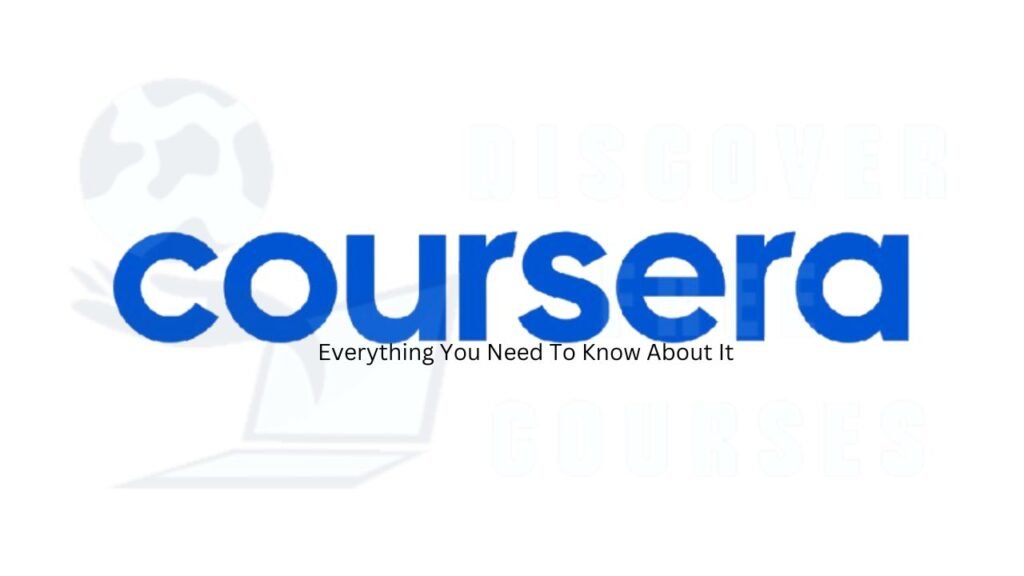
History of Coursera
Coursera was first discovered in 2012 by Daphne Koller and Andrew Ng, two Stanford University computer science professors. But later Daphne Koller left Coursera in 2016 to become chief computing officer at Calico. However, Andrew Ng is currently the Chairman of the Coursera Board. Ng and Koller started offering their Stanford courses online in the fall of 2011, and soon after left Stanford to launch Coursera. Jeff Maggioncalda is currently the CEO of Coursera. If you want to know more about the history of Coursera or its CEO then click on the link to know everything about them.
Coursera Review: PROS
To get a full taste of this online learning platform, let’s get started with something that people love most.
High-Quality Content
Coursera partners with prestigious universities like Stanford, Yale, and Princeton, as well as companies like Google and IBM. This ensures that the courses are credible, well-structured, and created by experts in their fields.
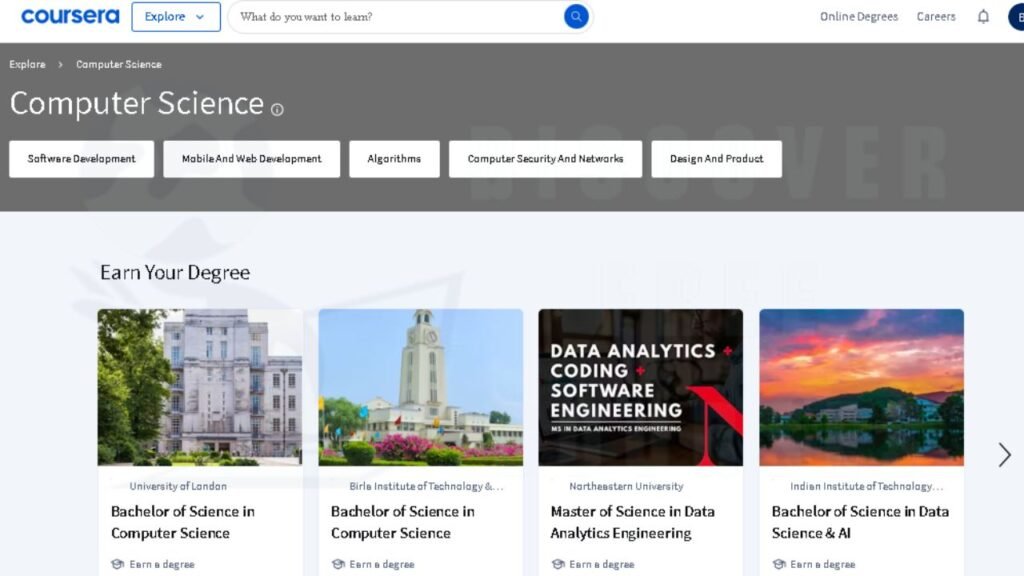
Wide Variety of Courses
With thousands of courses across disciplines like technology, business, arts, and health, Coursera offers something for everyone. Learners can choose from short courses, professional certificates, and even full degree programs.
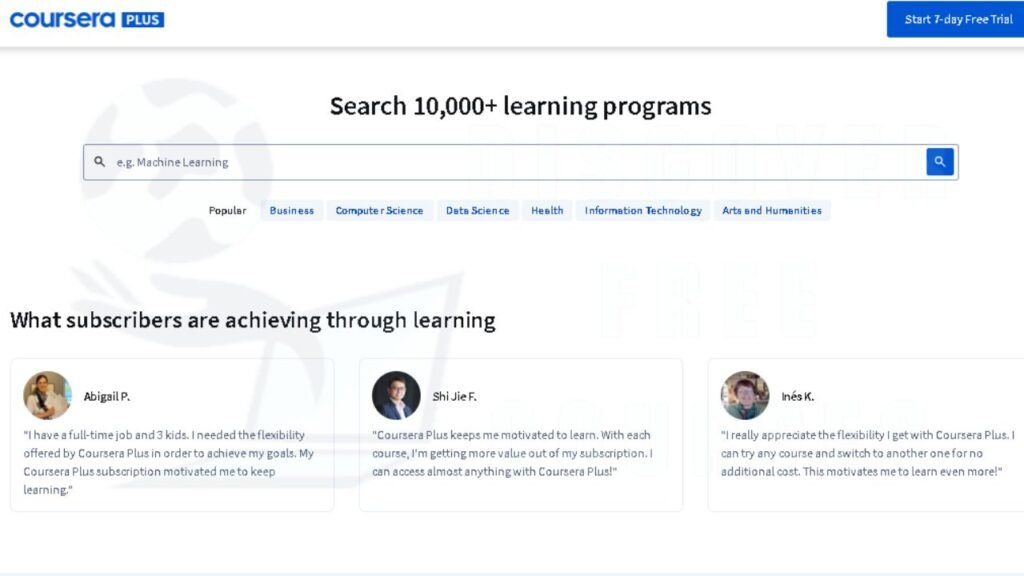
Mobile-Friendly Platform
Coursera’s app allows users to download course materials, making it easy to learn on the go. Offline access is particularly beneficial for learners in areas with limited internet connectivity.
Career-Focused Programs
Coursera’s professional certificates and career tracks, like those from Google and Meta, are tailored to equip learners with in-demand skills and help them transition into new careers.
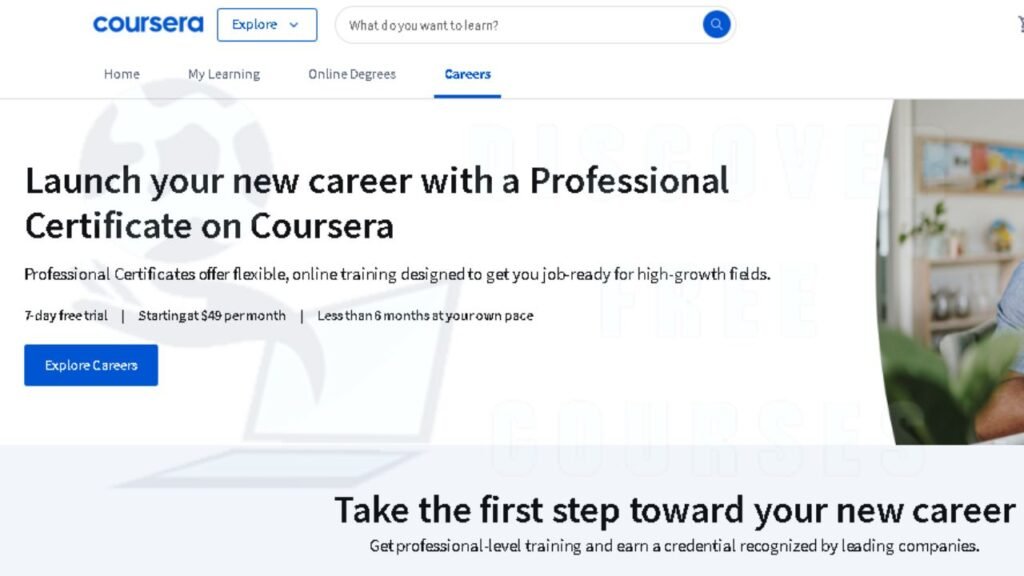
Professional Certificate Programs
Coursera’s professional certificate programs are structured online courses aimed at equipping learners with job-specific skills across diverse industries. These programs consist of interconnected courses featuring interactive assignments and practical projects to enhance hands-on learning.
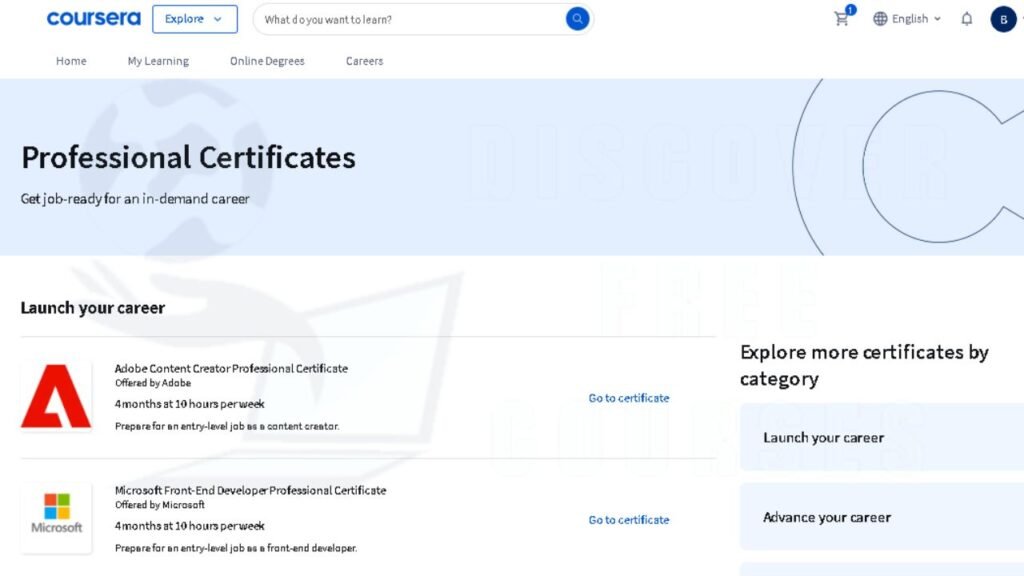
Guided Projects
Coursera’s guided projects offer focused learning experiences aimed at building specific skills or achieving particular objectives. These short, practical projects usually take just a few hours to complete, providing a hands-on approach that makes them an effective way to gain targeted expertise.
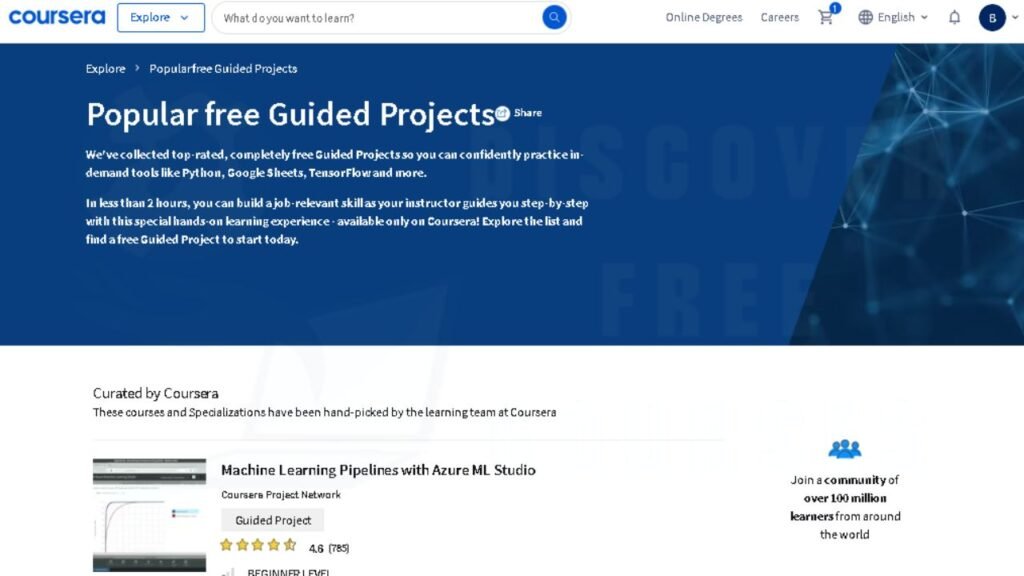
Graduate Certificate Programs
Coursera’s graduate certificate programs are advanced educational offerings designed for professionals or students seeking to enhance their expertise in a particular domain. Delivered in collaboration with accredited universities, these programs provide top-tier, university-level education.
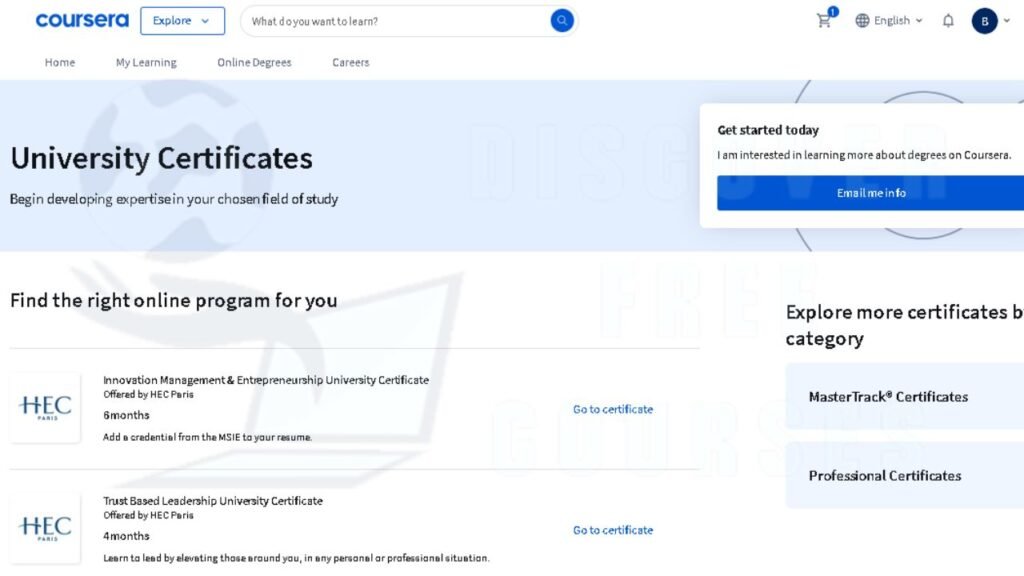
Specializations
A specialization is a curated collection of courses focused on a specific subject. It provides a structured learning journey, often featuring practical projects and assessments to apply the knowledge gained.
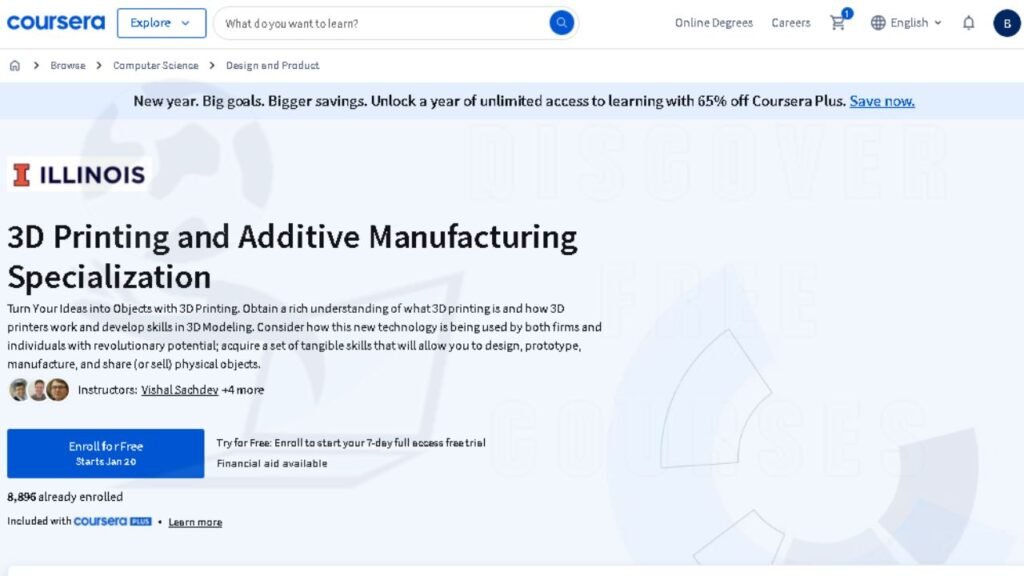
Coursera Review: CONS
As we all know that how much a website try to provide a simple and easy way to learn new skills and degrees. Some people will still dislike something about that website. In this Coursera Review, I have highlighted the cons that are disliked the most.
Complex Pricing Structure
Coursera’s pricing structure can be quite intricate, offering a range of options such as individual courses, specializations, professional certificates, and subscription plans like Coursera Plus. For new users or those seeking a simple pricing model, this complexity might feel overwhelming. Understanding the exact costs and what you’re signing up for often requires careful navigation. The varied pricing options may also demand additional effort to identify the most cost-effective learning path, potentially discouraging some learners from exploring the platform further.
Speaking of which…
Single Learning Program
Coursera’s Single Learning Program offers access to a specific course or specialization at a cost between $49 and $79 per month. This option is ideal for learners who want to focus on a single topic or skill. It provides full access to the course materials and allows users to earn a certificate after completing the program. This pricing is perfect for those who prefer a targeted learning experience without long-term commitments.

Coursera Plus Monthly
The Coursera Plus Monthly plan costs $59 per month and is designed for learners seeking flexibility and variety. With this subscription, users can access over 10,000 courses and specializations from top universities and companies. The plan includes unlimited certificates upon course completion and hands-on projects to develop job-ready skills. It’s a great choice for individuals looking to explore multiple topics without committing to an annual plan.
Coursera Plus Annual
For long-term learners, the Coursera Plus Annual plan costs $399 per year, offering significant savings compared to the monthly subscription. This plan provides unlimited access to courses, certificates, and projects, just like the monthly option. Additionally, it comes with a 14-day money-back guarantee, making it a cost-effective solution for those committed to continuous learning over the year.
Coursera for Teams
The Coursera for Teams plan is priced at $399 per user per year and caters to small teams of up to 125 members. This plan helps organizations enhance employee skills with access to 5,000+ learning opportunities. It includes team management tools, analytics, and a 14-day money-back guarantee. It’s perfect for businesses aiming to boost productivity and knowledge.
Coursera for Enterprise
The Coursera for Enterprise plan is tailored for large organizations with more than 125 employees. It provides scalable solutions, custom content curation, and advanced analytics for workforce development. This plan is ideal for companies looking to foster continuous learning and skill-building across their entire organization.
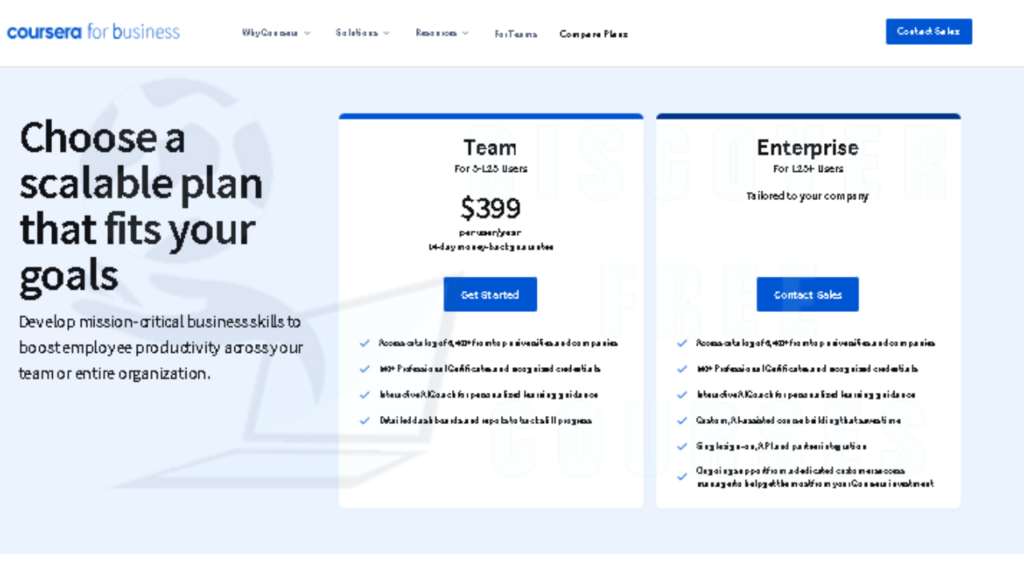
Coursera Review: FREE Courses
Coursera is mainly famous not because of its professional courses but also because of its wide range of FREE classes. With over 1800+ FREE Courses Coursera. You can start your career in any professional field. These courses provide access to high-quality video lectures, reading materials, and community forums. They’re perfect for self-motivated learners who don’t require formal certification. In this Coursera Review, I have covered some important things below that you should know about these free courses.
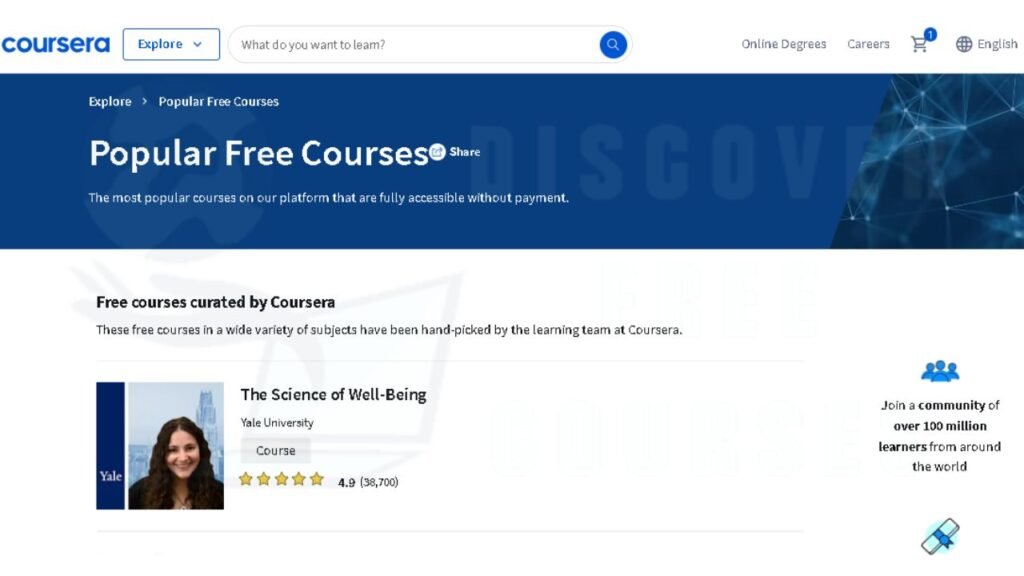
Access to High-Quality Content
When evaluating online learning platforms, one of the most crucial factors is the quality of the content. This aspect significantly influences a platform’s reputation and its overall success. In this Coursera review, content quality is a primary focus.
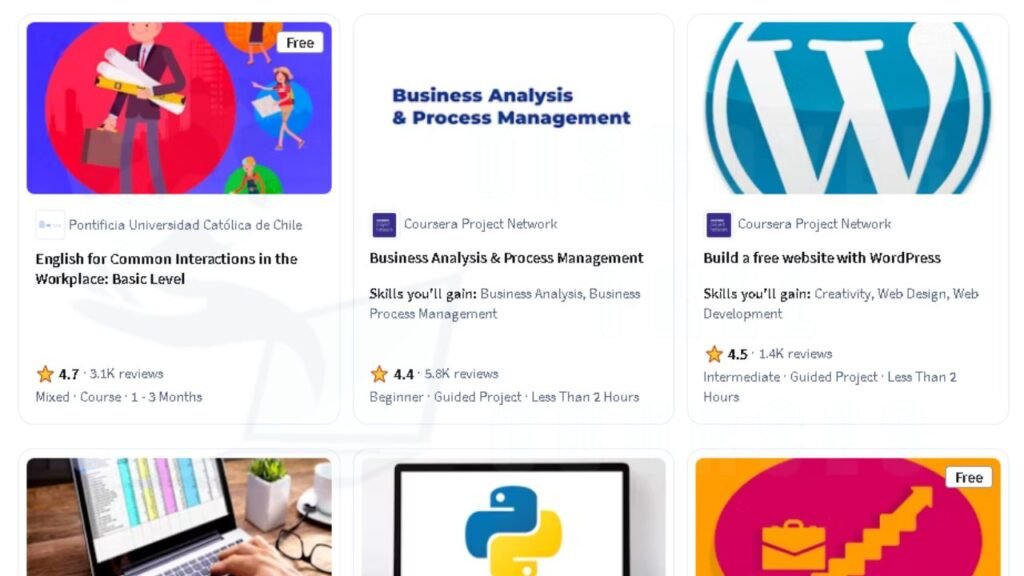
So, does Coursera meet expectations in this regard? The short answer is a resounding YES.
To dive deeper into this, we need to examine the content itself—or more specifically, the content providers. Coursera collaborates with numerous universities and companies globally. These universities, through their esteemed professors, contribute the majority of the content available on the platform.
Taught by Top-Instructors
One of Coursera’s best features is the opportunity to learn from top instructors who are leaders in their fields. These educators include professors from prestigious universities like Stanford, Yale, and the University of Michigan, as well as industry experts from global companies such as Google, IBM, and Meta.
Their expertise ensures that learners receive high-quality, up-to-date instruction that is both practical and academically rigorous. With engaging video lectures, interactive assignments, and real-world projects, Coursera’s top instructors make complex topics accessible and relevant to learners worldwide.
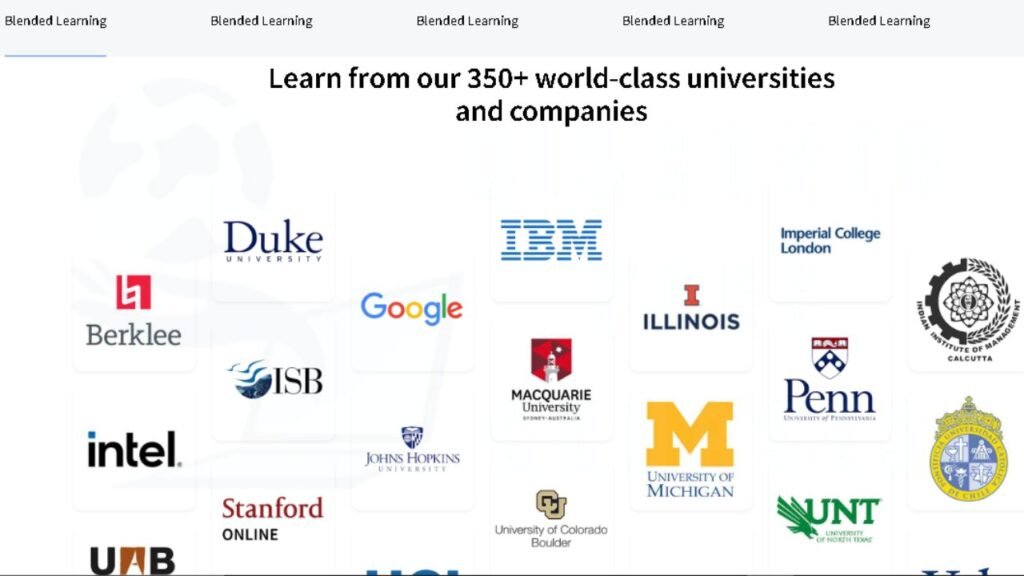
However, there are limitations. Free courses do not include graded assignments, quizzes, or a certificate of completion. If you’re looking to showcase your skills to employers, the lack of certification might be a drawback.
Coursera Review: PAID Courses
Paid courses on Coursera offer a more comprehensive learning experience, designed to provide both knowledge and career advancement opportunities. These courses include all the features of free courses, along with several premium benefits.
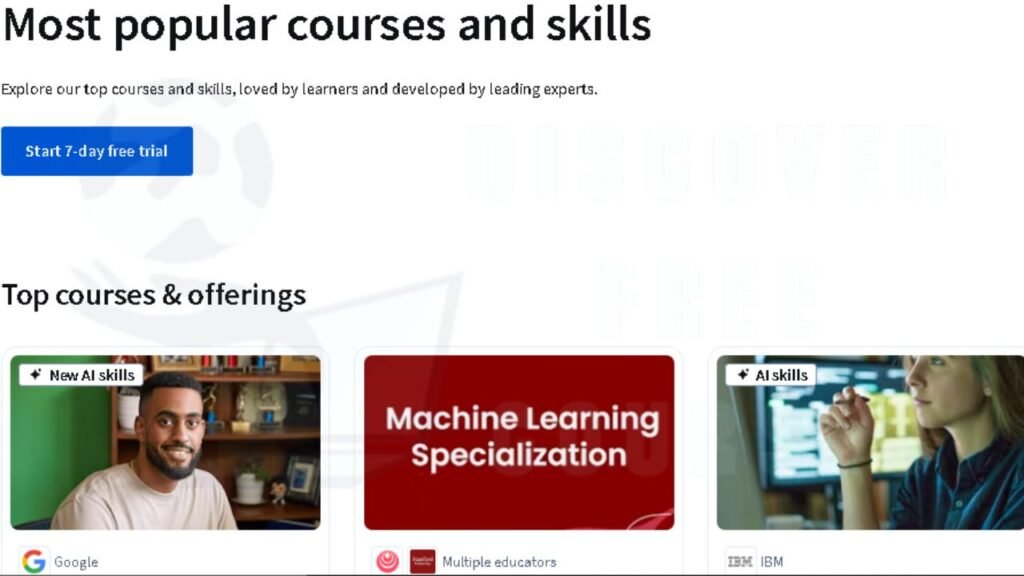
Certificates of Completion
Paid courses provide verified certificates that can be shared on LinkedIn or included in your resume.
Graded Assignments and Quizzes
Assessments are graded, helping you track your progress and solidify your understanding.
Access to Additional Resources
Many paid courses include extra readings, case studies, and practical projects.
Career Benefits
Paid options often come with job assistance programs and professional networking opportunities.
Paid courses are ideal for individuals looking to gain a competitive edge in the job market or advance their careers. They’re also valuable for learners who prefer a structured and guided approach to education.
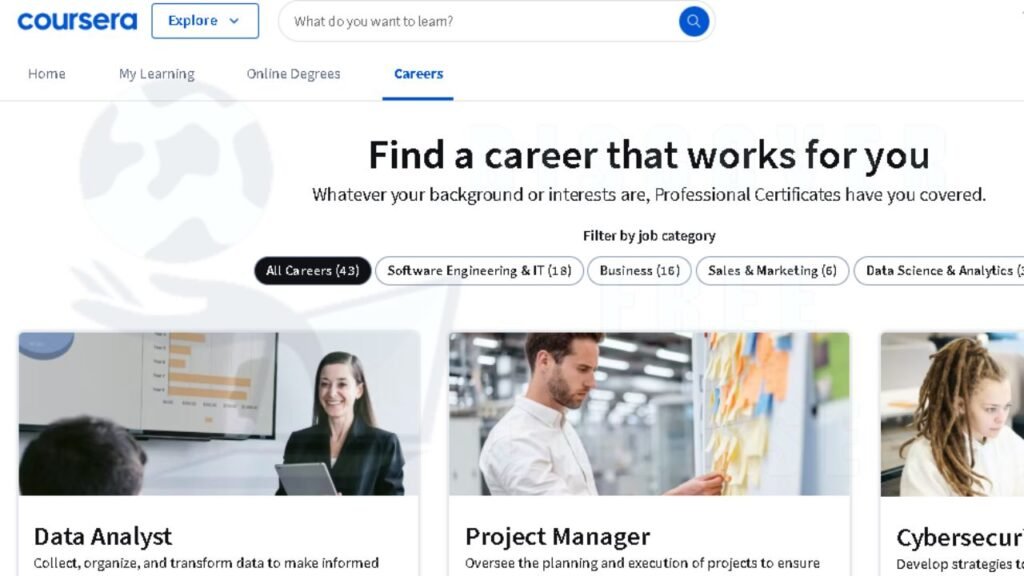
Comparing Paid vs Free Courses
| Feature | Free Courses | Paid Courses |
|---|---|---|
| Access to Lectures | Yes | Yes |
| Graded Assignments | No | Yes |
| Certificate of Completion | No | Yes |
| Extra Resources | Limited | Extensive |
| Cost | Free | Varies (starting around $9.99/course) |
Which Option Is Right for You?
The choice between paid and free courses depends on your goals and needs. Free courses can be an excellent option if you’re learning for personal growth or exploring a new subject. They provide high-quality education without financial commitment. However, if you’re looking to advance your career, gain formal recognition, or benefit from a structured learning path, paid courses are worth the investment.

Final Thoughts
My final thoughts on this Coursera review is that its versatility makes it a standout platform in online education. While free courses offer incredible value, the added benefits of paid courses make them a worthwhile consideration for serious learners. Ultimately, the decision boils down to your objectives, budget, and the level of commitment you’re willing to invest in your education. Whatever you choose, Coursera provides a robust platform to achieve your learning goals.
Also, check out and discover the key differences between free and paid courses in our Udacity Review: Free vs Paid Courses guide.
Frequently Asked Questions (FAQs)
Yes, Coursera is worth it for learners seeking high-quality courses from top universities and companies. Its flexible plans, certifications, and practical projects make it a valuable investment in education and career growth.
Yes, Coursera is good for learning diverse skills with courses taught by experts from top universities and companies. Its certifications, flexible options, and hands-on projects make it a trusted platform for personal and professional growth.
Yes, Coursera is worth it for gaining high-quality education, industry-recognized certifications, and practical skills from top universities and companies. Its flexible learning options make it ideal for career advancement and personal growth.
Coursera can help you get a job by providing job-specific skills, industry-recognized certifications, and hands-on projects. While it doesn’t guarantee employment, its programs are highly valued by employers worldwide.
Yes, Coursera is trusted by millions worldwide for its courses offered by top universities and industry leaders. Its certifications are widely recognized and respected by employers.











